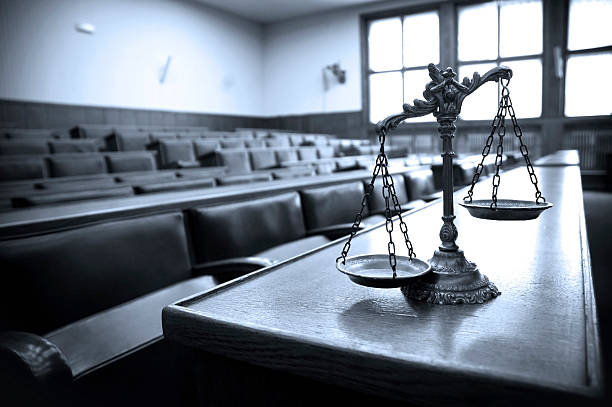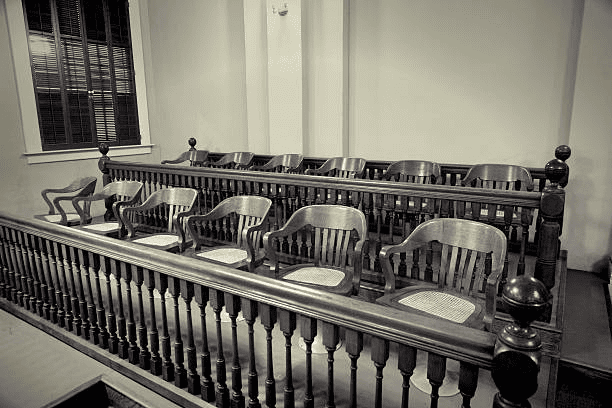Do you want to know if you are eligible for jury duty exemption? Here’s an article that will answer the most common questions one might ask about jury duty exemption in New South Wales (NSW), Australia.
Juries play a vital role in the Australian justice system. They are responsible for deciding the guilt or innocence of defendants in criminal trials. Juries also decide on damages in civil trials. By serving on a jury, you have the opportunity to make a real difference in the lives of others. You also have the chance to learn more about the Australian jury system and how it works.
Here are some FAQs about Jury Duty Exemption in NSW.
How Does the Jury Selection Process Work?
There are three steps to jury selection:
- Inclusion on the jury roll. People receive Notices of Inclusion that lets them know that they are on the jury roll. The notice contains the names of the people who may need to undertake jury service in the next 12 months.
- Summons to jury service. People who get a Notice of Inclusion may receive a Jury Summons. The summons requires them to report or attend court on a specific day for jury service.
- Jury selection and empanelling. At court, people who have receive summons are randomly selected and may then be empanelled to serve on a jury in a particular trial.
Who Is Eligible for Jury Duty in NSW, Australia?
Any Australian citizen aged between 18 and 75 years and listed on the electoral roll within each jury district is eligible to receive a jury summons.
The reason for such eligibility is that, as a juror, you will:
- Hear and determine more serious criminal matters
- Hear and determine civil matters involving large monetary claims
- Participate in coronial inquests
In criminal trials, a jury hears the evidence of the case, applies the law, and decides if the accused is guilty or not guilty of a crime, having the facts of the case as the basis for such a decision. In civil proceedings, defamation cases usually require juries. The judge will ascertain the issues of the case and the jury will determine who is at fault.
Thus, for these decisions to be based on sound, intelligent, and competent reasoning, the Court needs jurors who are of a certain age with developed and appropriate mental faculties that allow them to differentiate whether an act is wrong or not.
Who Is Ineligible for Jury Service in NSW?
There are two categories of people who are ineligible for jury duty: The public officers and convicted offenders. Moreover, jury duty exemption also extends to the following people:
- clergy
- members of any religious order who are under vows
- medical practitioners, dentists, and pharmacists, who are currently in practice
- people employed by fire, ambulance, rescue, or other emergency services (except for part-time or voluntary workers)
- people who have served as jurors within the past three years
- people summoned for jury service, who were available and prepared to serve as jurors within the past 12 months, but did not serve as jurors (they were not selected)
- people who have an entitlement for exemption because of previous lengthy jury service
- a person who resides with and has the full-time care of a person who is sick, infirm, or disabled

Can People With Disabilities Be Excused From Jury Duty in NSW?
Yes, jury duty exemption extends to people with disabilities permanently if they have medical reasons, such as illness or disability. Section 14 of the Jury Act 1977 (NSW) provides that “A person may request the sheriff to exempt him or her permanently from jury service because:
- the person suffers from a permanent mental or physical impairment
- such impairment results in jury service being incompatible with the person’s good health
- such impairment renders the person unable to perform jury service.
However, in the Druett and Cooper v. State of New South Wales case, the complainants are both people with disabilities who had received a summon for jury duty. Mr. Cooper and Ms. Druett have partial loss of body functions and both require the use of a wheelchair for mobility. Thus, they were both excluded from serving on a jury because of their disabilities.
Druett and Cooper filed a complaint with the Human Rights and Equal Opportunity Commission, alleging that they had been discriminated against on the basis of their disabilities. The State of New South Wales argued that the exclusion of people with disabilities from jury service was necessary to ensure the proper functioning of the justice system.
The Commission found that the exclusion of people with disabilities from jury service was discriminatory and a violation of their human rights. Thus, it recommended that the State of New South Wales take steps to ensure that people with disabilities are not excluded from jury service in the future.
Support your reasons for jury duty exemption with evidence, depending on the grounds for your request:
- Work commitments—a written statement from your employer
- Medical grounds—a medical certificate stating the period of time that you can’t serve as a juror
- Academic duties—a copy of your student identification card, examination or class timetable.
- Holidays—a travel itinerary, flight tickets, tour confirmation documents.
- Personal or financial grounds—an explanation, such as that you are employed casually and will lose your income if you attend jury duty.
Note: Please ensure not to give out false or misleading information when providing supporting documentation for jury duty exemption.
What Are the Reasonable Excuses for Exemption From Jury Duty in NSW?
The Jury Amendment Act 2010 No. 55 allows for jury duty exemption in NSW. It provides that “A person may request the sheriff to exempt him or her from jury service for the whole or part of any period during which the person may be summoned for jury service by showing good cause for the exemption.”
So what is a “good cause?” Section 14A states that a person has a good cause for jury duty exemption if:
- jury service would cause undue hardship or serious inconvenience to the person, the person’s family or the public, or
- some disability associated with that person would render him or her, without reasonable accommodation, unsuitable for or incapable of effectively serving as a juror, or
- a conflict of interest or some other knowledge, acquaintance or friendship exists that may result in the perception of a lack of impartiality in the juror, or
- there is some other reason that would affect the person’s ability to perform the functions of a juror.
How Can I Be Excused From Jury Duty in NSW?
For you to avail jury duty exemption, you must have one of the reasonable excuses mentioned above. You can apply online and enter the following details:
- juror number
- date of birth
You can also apply to be excused the day you report to court for jury service. Please take any supporting documents, such as letters from your employer or doctor with you. To ask to be excused, you can speak to the:
- sheriff’s officer or staff member
- judge or coroner.

Find Out How a Lawyer Can Help You
If you need to complete jury duty in New South Wales, Australia and you believe you may be eligible for an exemption, you should strongly consider hiring a lawyer. Our lawyers at JB Solicitors can help you assess your eligibility for an exemption, gather the necessary evidence, and prepare a strong application.
Contact us today.
